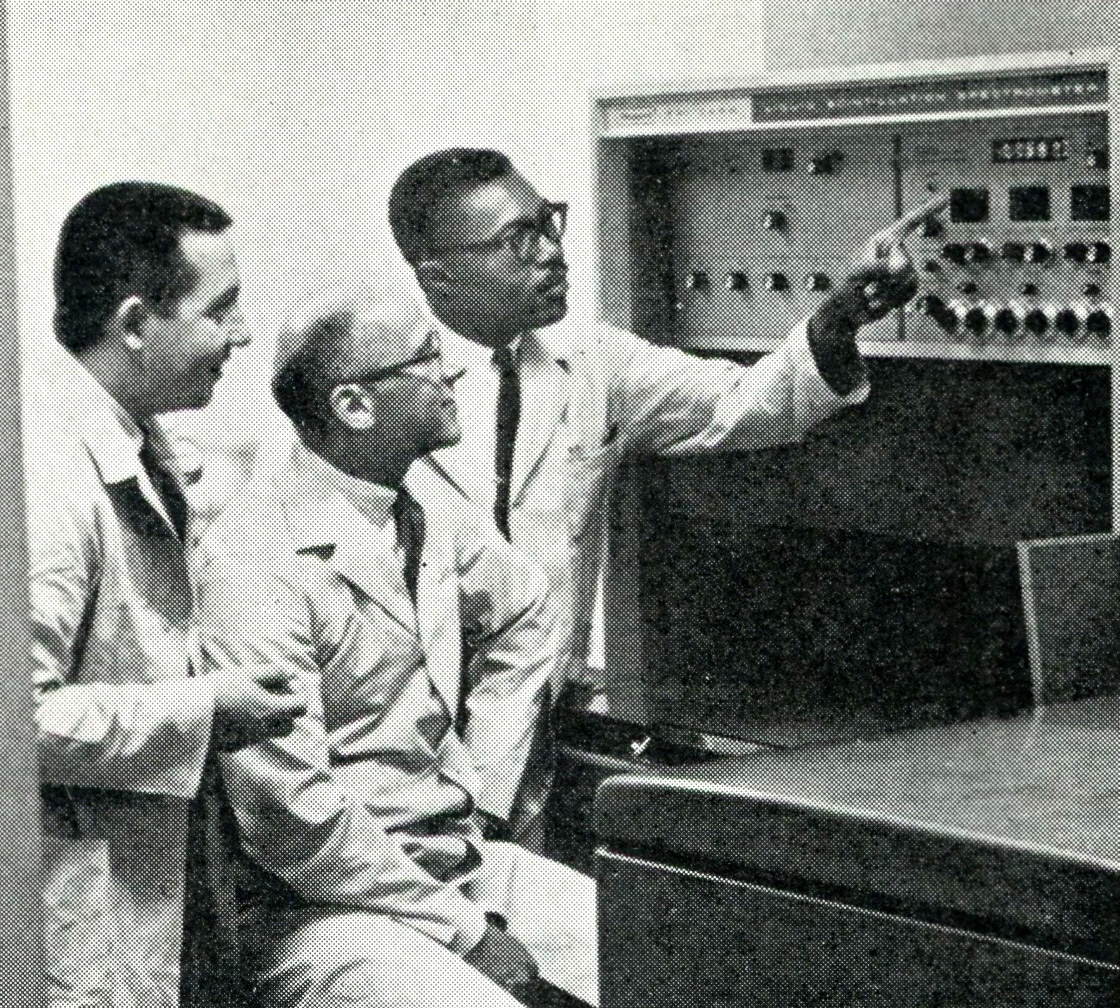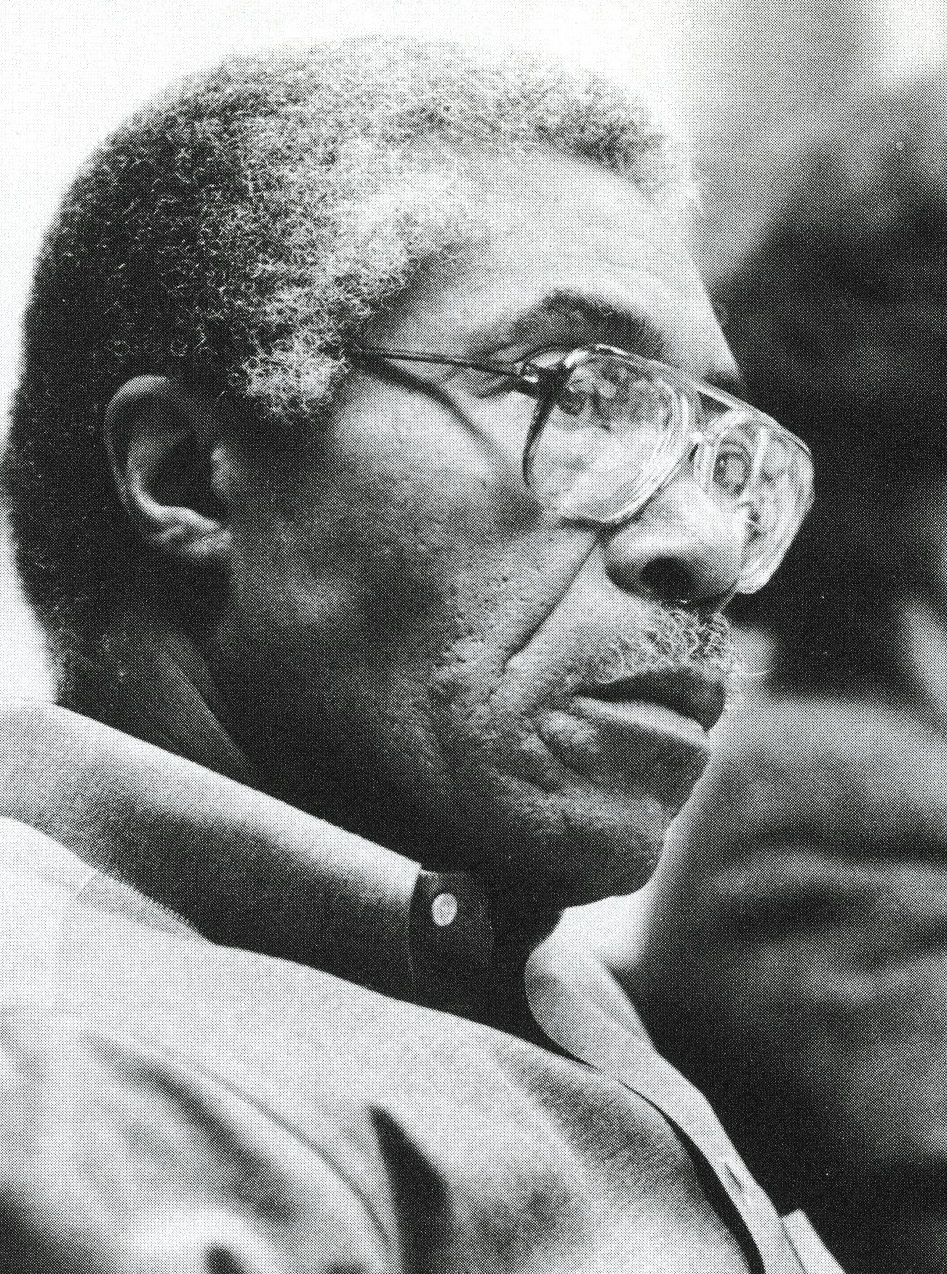Dennis Perry, PhD, 1932-1998
By Emma Florio, Special Collections Library Assistant
Dennis Perry was born on Christmas Day 1932 in West Point, a small town in northeastern Mississippi, where his father worked as a farmer. The family moved to East St. Louis, Illinois, in the 1940s. Perry earned a BA from Southern Illinois University in 1957 and an MA from the same institution the next year. He married his wife Fannie in the late 1950s and they had four sons.
 |
|
Perry (right) and colleagues at Northwestern use a scintillation counter in the department of microbiology, ca. 1966. From Northwestern University Medical School Magazine, September 1966.
|
Perry’s connection to Northwestern began when he entered the PhD program in microbiology at Northwestern University Medical School (NUMS). He earned his PhD in 1962, at a time when there were very few Black students in any program at the medical school. His thesis was “The Genetic Transformation of Streptococci,” a topic that Perry would continue to research throughout his career. After graduation, he became an instructor in microbiology at the medical school. He was promoted to Assistant Professor in 1965 and to Associate Professor in 1970. His research on the transformation of streptococci was supported by multiple grants from the National Institutes of Health, and he often read papers at meetings and published articles on the subject in the 1960s.
For much of Perry’s time at Northwestern, he was the only African American faculty member in the basic sciences. Tacoma McKnight, MD, a 1983 graduate of the medical school and current associate professor of obstetrics and gynecology, remembered that the small back room of his research lab acted as the unofficial first minority affairs office at NUMS. She described it as “a safe space for the few minority medical students and residents to find allyship.” He acted as Minority Affairs Officer at the school until Delores Brown became Assistant Dean for Minority Affairs in 1990.
 |
|
Perry, ca 1992. From Ward Rounds, Summer 1992.
|
Perry’s outreach to minority students extended beyond the walls of the medical school. In the 1970s he participated in the Chicago Urban League’s Career Day, where junior high students could learn about science-related careers. He also headed the Chicago Area Health and Medical Career Program, known now as the Creating Pathways and Access for Student Success Foundation, which to this day aims to increase the number of underrepresented students in healthcare and STEM professions. Perry acted as a role model in his own family as well: his niece, historian Darlene Clark Hine, recalled him generously helping her with math schoolwork and science fair projects, demonstrating the importance of meticulous research and attention to detail.¹
Dennis Perry retired from Northwestern in 1995 and died on July 11, 1998, leaving a legacy of commitment to education and equal opportunity at Northwestern as well as in the greater Chicago community. As his former student Tacoma McKnight remembered, “He was a diversity trailblazer at NUMS at a time when the culture of the place reflected the discrimination and bias of society overall against African Americans in particular.”
Endnotes
1. Darlene Clark Hine, “Becoming a Black Woman’s Historian,” Telling Histories: Black Women Historians in the Ivory Tower (Chapel Hill: University of North Carolina Press, 2008), 46.
Selected References
“Dennis Perry Sr. - taught microbiology.” Chicago Sun-Times. July 15, 1998.
“Inclusion and Allyship: Sharing Stories: Tacoma McKnight.” Northwestern Medicine Magazine. Fall 2021.
Updated: February 29, 2024